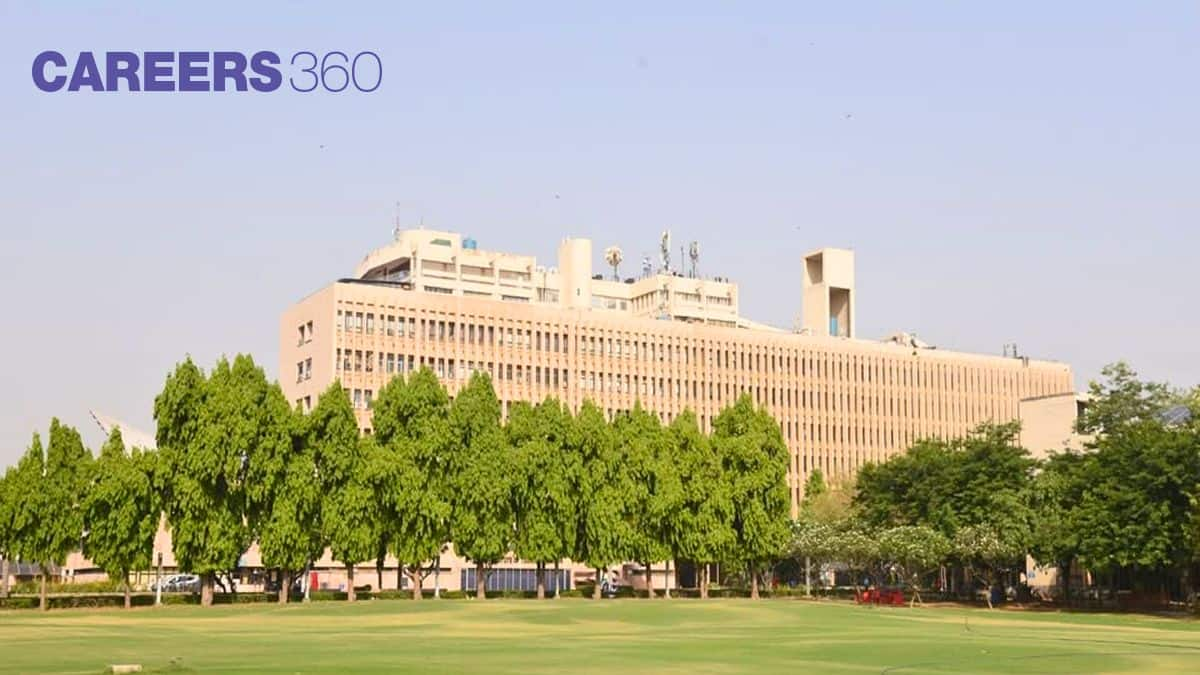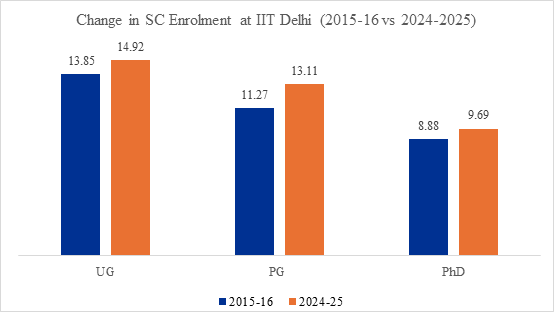IIT Delhi Launches Special PhD Drive for SC/ST Candidates: What You Should Know?
IIT Delhi has rolled out a first-of-its-kind special PhD admission drive exclusively for SC/ST candidates. The move is aimed at improving representation in doctoral research and ensuring that deserving students from these communities have better access to world-class education. The deadline to apply was June 30, 2025, by 4 PM.

IIT Delhi has also altered PhD admission requirements to improve access:
For M.Tech/ME/MD/M.Des programmes, the minimum CGPA for an eligible applicant has been changed from 6.0 to 5.5.
For MSc/MBA/MA/MBBS, the required minimum marks has been reduced from 70% to 65%.
Departments can now enroll qualified SC/ST candidates in excess of the usual quota caps which streamlines the process by ensuring that administrative seat limits won’t stifle eligibility.
PhD enrollment for SC/ST candidates has been persistently low at many top universities, including the IITs. Data shows that SC representation is at 9.69% and ST representation at 3.28%, both falling short of the 15% and 7.5% benchmarks projected over a decade.

This drive is more than just a way to meet quotas. It aims to create a fairer, more diverse, and inclusive research environment where students from underrepresented groups can succeed at India's leading universities.
A Closer Look at the Benefits for Applicants
Lower academic barriers lead to more opportunities
Special attention from departments means applicants are more likely to get guidance and support
Research at IIT Delhi can lead to fellowships, global exposure, and rewarding careers in both academia and industry
Candidates in science, engineering, or management can enroll in PhD programmes at one of India's top universities without having to worry about meeting deadlines.
This initiative has made inclusive, high-quality education more accessible to students across India. If you or someone you know is qualified to start a career in research that has the potential to truly change the world, apply before the deadline.
List of Related colleges
Questions related to IIT Delhi
On Question asked by student community
The difference between IIT (Indian Institute of Technology) and IIIT (Indian Institute of Information Technology) is:
IITs provide a comprehensive range of engineering and science disciplines, and IIITs are specialised institutions focused specifically on Information Technology and Computer Science.
Hi Basopurvala, click on the link to know the marks required for admission into IIT Delhi .
Hello,
At 96 percentile , he has good chances , in following Colleges especially due to strong academics and experience.
Very Good Non-IIM Options (High Chance)
-
IMT Ghaziabad
-
NMIMS Mumbai
-
XIMB Bhubaneswar
These colleges generally accept candidates in the 95–96 percentile range.
Hope it
Hello
If you want to get admission in IIT Delhi, then you will score well in JEE Advanced. Only the JEE Mains score is not sufficient to get admission in the IIT Delhi. You need to score 250+ marks for the general category in CSE. For the reservation category, you
Hello Geeta,
No, you cannot directly take admission in Class 12 without passing Class 11. Every recognized board, whether CBSE, HBSE, or any private school board, requires students to complete Class 11 first. Skipping Class 11 is not allowed.
Since you are doing Class 10 from NIOS, you have two
Applications for Admissions are open.
Among top 100 Universities Globally in the Times Higher Education (THE) Interdisciplinary Science Rankings 2026
Amrita University B.Tech 2026
ApplyRecognized as Institute of Eminence by Govt. of India | NAAC ‘A++’ Grade | Upto 75% Scholarships
Amity University-Noida M.Tech Admissions 2026
ApplyAmong top 100 Universities Globally in the Times Higher Education (THE) Interdisciplinary Science Rankings 2026
Vignan's Deemed to be University B.Tech Admissions 2026
Apply70th University Ranked by NIRF | 80th Engineering Rank by NIRF | Accredited by NBA and NAAC A+
UPES B.Tech Admissions 2026
ApplyLast Date to Apply: 28th Feb | Ranked #43 among Engineering colleges in India by NIRF | Highest Package 1.3 CR , 100% Placements
Victoria University, Delhi NCR
ApplyApply for UG & PG programs from Victoria University, Delhi NCR Campus
